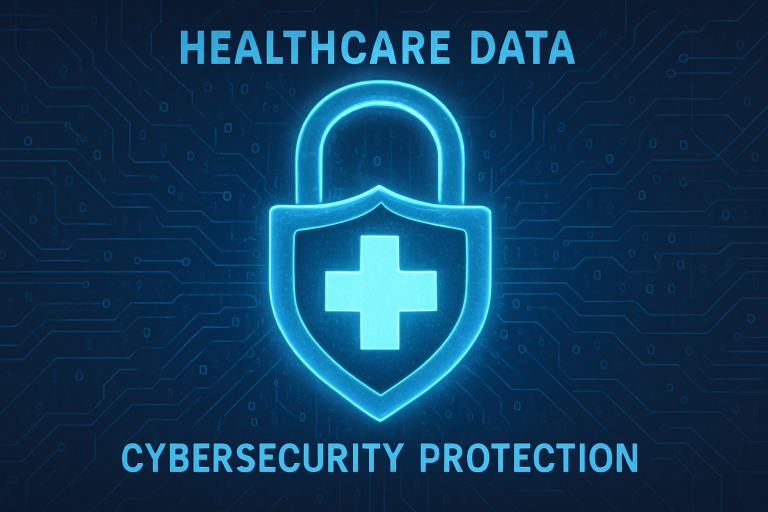The healthcare sector in 2025 is facing rapid digital transformation and an increase in cyber threats. As providers adopt new technologies and attacks become more sophisticated, data breaches surge, posing a risk to patient information. This highlights the need for strong strategies to protect healthcare data. Meanwhile, stricter regulations, increased third-party vendors, and innovations such as AI and IoMT are raising risks and ethical questions, requiring the attention of all stakeholders.
Rising Cyberattacks on Healthcare Systems
Cyberattacks on healthcare have surged, making hospitals and health tech prime targets. In early 2025, a breach at UnitedHealth’s technology unit compromised the records of 190 million Americans, causing disruptions and eroding trust. Incidents like these underscore the growing threat of healthcare data breaches, which endanger confidential information and disrupt care delivery. Medical data is highly valued on the dark web, often more than financial info. Ransomware, data theft, and supply chain attacks are increasingly common, prompting organizations to strengthen their defenses and reassess cybersecurity strategies.

Regulatory Changes and Compliance Pressures
2025 signals a major shift in healthcare data privacy laws in the U.S. and internationally. HIPAA’s updated rules target areas like reproductive health and telemedicine, forcing health tech companies and insurers to adopt stricter protective measures and detailed documentation, especially across state lines. Organizations face increasing legal pressure to safeguard sensitive health data amid potential court orders and litigation. Compliance now involves navigating federal, state, and international rules and demonstrating due diligence after breaches. Non-compliance leads to hefty fines and damages patient trust, which is harder to rebuild.
Third-Party Vendor Risks
Healthcare organizations rely on third-party vendors for various tasks, but these partnerships pose security risks. The 2024 attack on Change Healthcare shows how a single vendor breach can disrupt care and finances for many providers. Vendors often hold large amounts of protected health data but lack consistent security practices. Due to frequent breaches, healthcare systems should conduct regular risk assessments, enforce robust security contracts, limit vendor access, and regularly audit protocols to protect patient data and ensure system resilience.
Technological Advancements and Privacy Concerns
Digital innovations like AI diagnostics, cloud EHRs, and IoMT devices are transforming healthcare but pose privacy challenges. Many IoMT devices use outdated software, making them vulnerable, and large data sets increase hacking risks. Healthcare must prioritize cybersecurity in all technology choices, making privacy a core aspect of digital modernization.
Patient Data Misuse and Ethical Dilemmas
The 2025 bankruptcy of 23andMe highlighted risks in privacy protections for medical data from nontraditional health companies. While hospital data is typically regulated, direct-to-consumer health tech and medtech firms may be exempt from federal oversight, which could lead to the misuse, discrimination, or resale of sensitive data, including genetic, biometric, and behavioral information. The sensitivity of this data raises ethical concerns: Can organizations innovate while safeguarding patient rights? Legislative reform can help, but adopting ethical stewardship is also essential.
Global Initiatives and Their Impact
The European Health Data Space (EHDS) regulation, effective as of March 2025, establishes a harmonized framework for health data protection across the EU, promoting controlled data use for innovation, research, and policy. As other regions adopt similar policies, these global initiatives influence worldwide standards, providing benchmarks for nations revising healthcare privacy laws. U.S. healthcare entities must monitor and adapt to these evolving international standards for data privacy and cross-border patient rights.
Strategies for Enhancing Data Privacy
To ensure the security of patient data, it is essential to conduct comprehensive risk analyses, enforce access controls and multi-factor authentication, and use end-to-end encryption for data protection. Vendor management should be strengthened to meet cybersecurity requirements, and incident response plans should be regularly developed and updated. A culture of security awareness should be built, with ongoing training for employees and leaders to foster accountability and vigilance in protecting patient data.
Conclusion
The fight for healthcare data privacy is only intensifying in 2025. With more at stake and more vectors for attack, both technological and human, the entire healthcare industry must remain proactive, adaptable, and uncompromising in its defense of sensitive health data. By adopting a multi-layered privacy strategy, staying ahead of regulatory and technological developments, and prioritizing public trust, healthcare leaders can meet today’s privacy challenges and safeguard the future of patient care.






